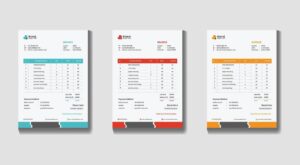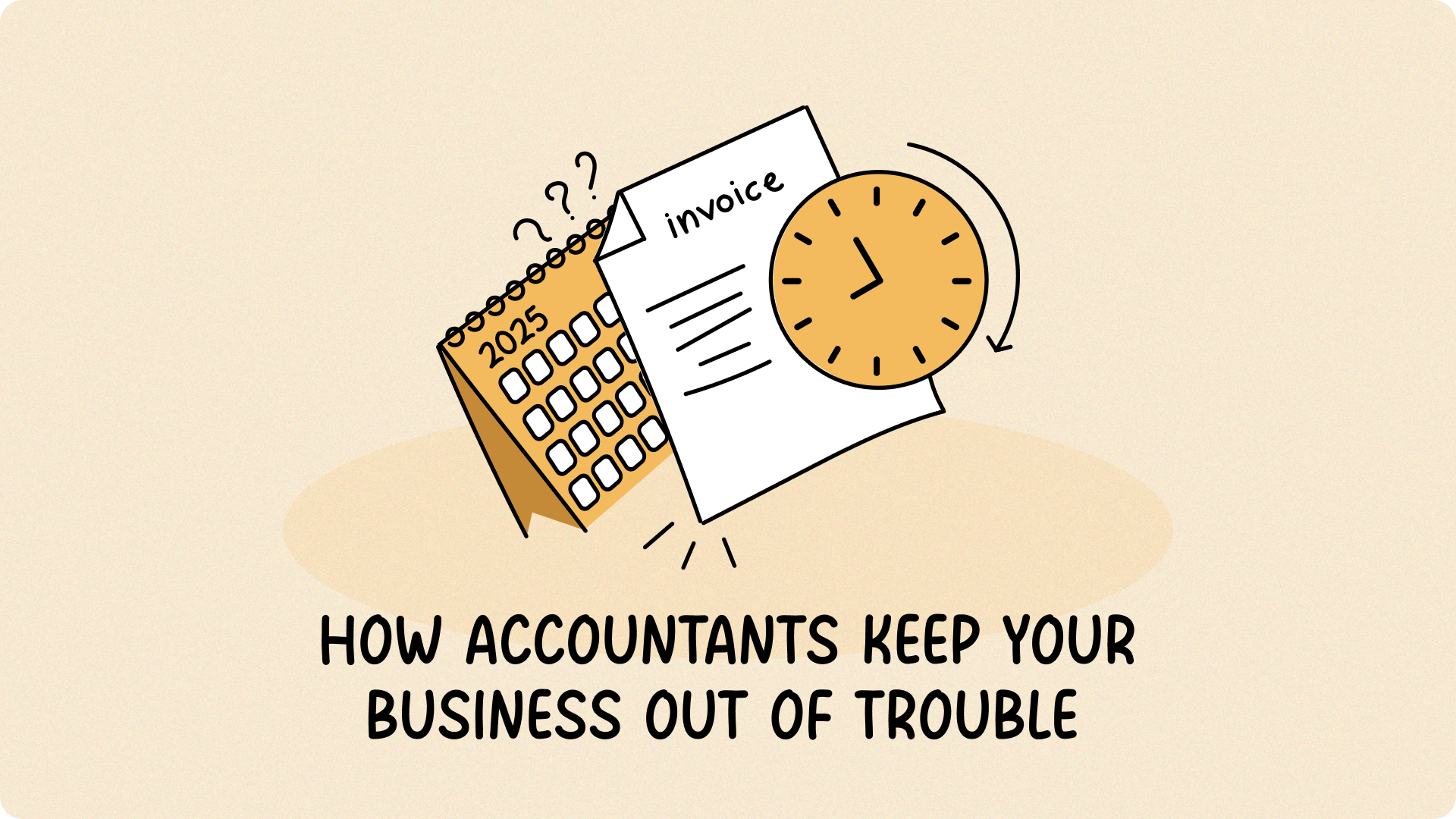When you run your own business, you manage everything from client work to backend logistics—often in the same hour. One moment you’re pitching new clients, the next you’re processing invoices or troubleshooting a tech issue. While most of these roles are focused on growth and creativity, some—like acting as your own Chief Financial Officer—come with significant risk.
It’s easy to think of an accountant as a cost—someone you hire once a year to handle your tax return. But that’s a dangerously narrow view. A great accountant isn’t a reactive expense; they are a proactive shield, your first line of defense against a host of troubles that can derail a thriving business.
The financial landscape is complex. According to a report from the National Small Business Association (NSBA), about one-third of small business owners spend over 80 hours per year—two full work weeks—just dealing with federal taxes alone. That’s a huge drain on your time, and it’s just one of the many financial challenges you face.
A good accountant does more than just file your taxes. They actively work to keep your business safe, solvent, and on the right side of the rules. Here’s how.
Table of Contents
- They Keep You Out of Tax Trouble
- They Keep You Out of Cash Flow Trouble
- They Keep You Out of Compliance & Legal Trouble
- They Keep You Out of Strategic Trouble
- Your Proactive Partner, Powered by Smart Technology
1. They Keep You Out of Tax Trouble
This is the most obvious, but also the most critical, role an accountant plays. The tax code is notoriously complicated and constantly changing. An accountant ensures you’re not just meeting deadlines, but doing it right the first time.
They go beyond basic compliance by:
- Navigating Complexity: They understand the nuances of federal, state, and local tax laws, ensuring you’re meeting all your obligations.
- Providing Strategic Planning: They help you legally minimize your tax burden by advising on business structure (e.g., Sole Proprietor vs. S-Corp), retirement contributions, and timing major expenses for deductions.
- Serving as Your Representative in an Audit: In the unlikely but stressful event of an IRS inquiry or audit, your accountant is the expert in your corner. They handle communications with tax authorities and represent you, ensuring the process is managed correctly and professionally.
2. They Keep You Out of Cash Flow Trouble
Here’s a hard truth for many business owners: profit does not equal cash in the bank. You can have a profitable month on paper but still not have enough cash to make payroll. And it matters—a study found that 82% of small business failures are due to poor cash flow management. It’s one of the leading reasons businesses that seem successful still shut their doors.
An accountant is your safeguard against this. They help you:
- Understand Your True Financial Position: By preparing regular financial statements, they show you the real story behind the numbers.
- Forecast Future Cash Needs: They help you build cash flow projections, so you can anticipate potential shortfalls weeks or months in advance and plan accordingly.
- Manage Your Financial Cycle: They can offer strategies for managing your accounts receivable (getting paid faster) and accounts payable (paying your own bills on time), keeping your cash flow healthy and predictable.
3. They Keep You Out of Compliance & Legal Trouble
Beyond taxes, there are other regulatory areas where a simple mistake can lead to significant penalties. An accountant helps steer you clear of these common landmines.
One of the biggest is worker classification. Misclassifying a W-2 employee as a 1099 independent contractor can lead to severe penalties from the DOL and IRS for back taxes and benefits. An accountant provides crucial guidance to make sure you classify your team correctly from the start. They also ensure payroll is run accurately and that you’re maintaining the clean, professional records required for securing a business loan, renewing insurance, or even selling your business down the line.
4. They Keep You Out of Strategic Trouble
Some of the most expensive mistakes in business aren’t about compliance; they’re about strategy. A good accountant acts as an objective, data-driven sounding board for your biggest decisions.
Before you make a move, they help you answer the tough questions:
- “Can I really afford to hire my first employee?”
- “Does it make financial sense to buy this expensive new equipment, or should I lease it?”
- “If I take on this big new client, will I have the cash flow to handle the upfront costs?”
They prevent you from making emotionally-driven decisions that your finances can’t actually support. By modeling the financial impact of your ideas, they help you grow your business sustainably and avoid costly strategic errors.
Your Proactive Partner, Powered by Smart Technology
Think of a great accountant not as a cost, but as an investment in your business’s safety, stability, and long-term health. They are the expert on your team whose entire job is to watch your back. But their strategic advice is only as good as the data they receive.
Today, the most effective accountants work in partnership with their clients through modern, cloud-based accounting software. This approach creates a collaborative relationship where your financial data is always up-to-date. The software automates the tedious work of data entry and organization, freeing up your accountant to focus on what really matters: providing the proactive advice that keeps your business out of trouble.
Having clean, organized financials is the first step to empowering them—and yourself.
If you’re ready to build a financial foundation that supports smart decision-making, schedule a free call with one of our specialists. Or, if you prefer to dive in yourself, sign up for free and start exploring today.







